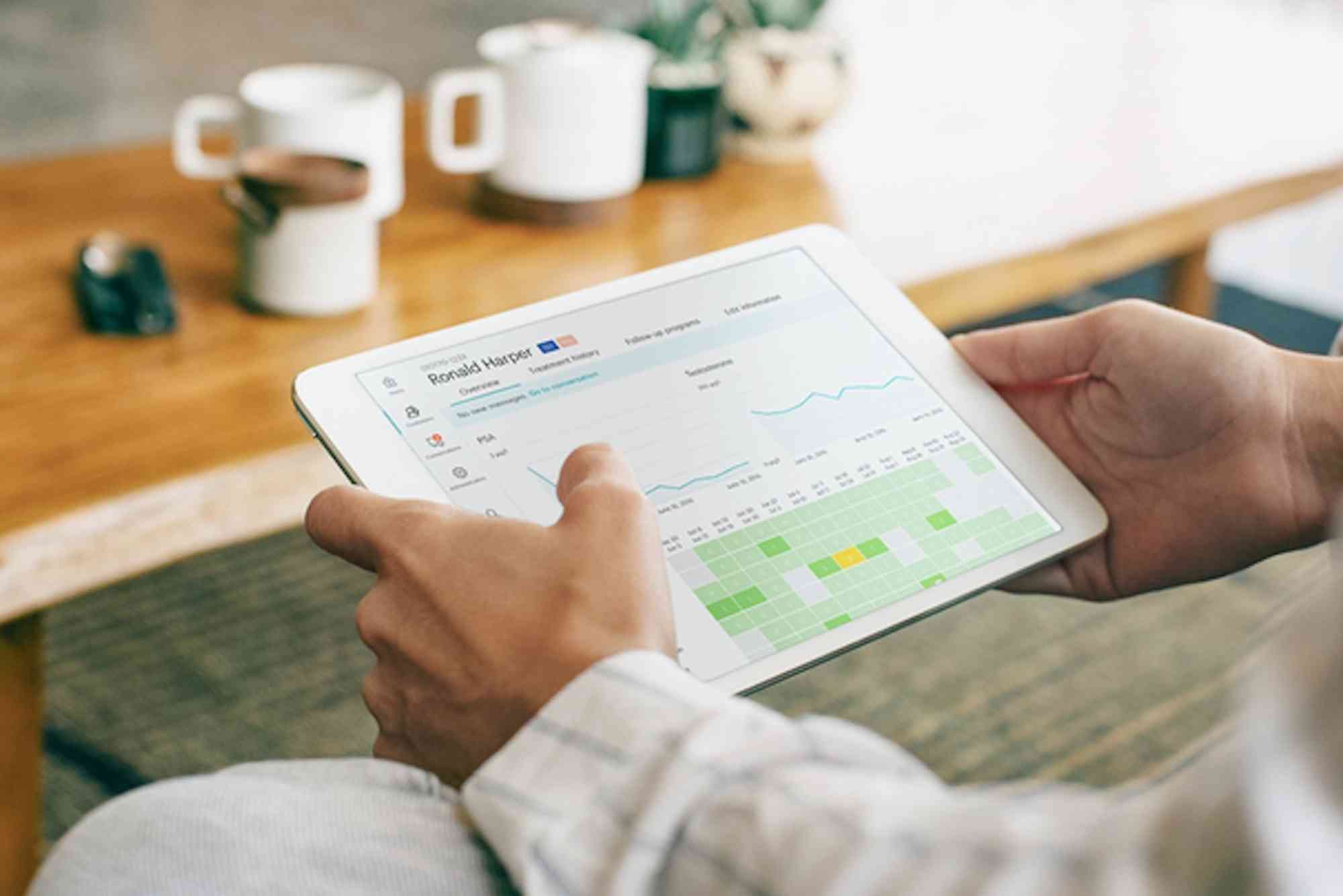Kaiku Health: A Smart Digital Health Platform
Digital healthcare is evolving rapidly, and Kaiku Health stands at the forefront of this transformation. As a smart digital health platform, Kaiku Health is revolutionizing how chronic diseases—especially cancer—are monitored, managed, and treated. By enabling real-time symptom tracking and personalized support, this platform empowers both patients and healthcare professionals. In this article, we will explore what makes Kaiku Health unique, how it works, and why it’s a game-changer in the digital health industry.
What is Kaiku Health?
Kaiku Health is a digital health platform designed to improve the quality of life for patients with cancer and other chronic conditions. It enables remote symptom monitoring and patient-reported outcomes (PROs), offering a bridge between clinical care and real-time patient data. By tracking symptoms and side effects through a digital interface, healthcare providers can intervene earlier and deliver more personalized care.
Kaiku Health isn’t just another health app; it’s a clinically validated solution used in hospitals and oncology centers across Europe and beyond. With its user-friendly design and data-driven backend, Kaiku Health helps patients stay connected with their care team and ensures that no symptom goes unnoticed.
The Vision Behind Kaiku Health
The platform was founded in Finland with a simple yet powerful mission: to improve the lives of people living with serious diseases through smart, digital tools. Over the years, Kaiku Health has grown into a globally recognized name in digital therapeutics, especially in oncology. The platform is now part of Elekta, a leading medical technology company specializing in precision radiation therapy and cancer care.
By combining patient engagement, data science, and clinical expertise, Kaiku Health is helping to reshape traditional healthcare pathways. It supports a future where digital tools complement in-person care, improving outcomes and making treatment more adaptive to the patient’s real-time needs.
How Does Kaiku Health Work?
Kaiku Health integrates with hospital systems and electronic health records (EHRs), allowing clinicians to monitor their patients remotely. Patients receive digital questionnaires that are tailored to their condition and treatment phase. These questionnaires collect data about symptoms, side effects, and overall well-being.
The collected data is analyzed using evidence-based algorithms. If the system detects concerning symptoms—such as severe fatigue or unusual pain—it can alert the care team immediately. This proactive approach means potential complications can be addressed before they escalate.
For the patient, the platform is simple to use. It can be accessed through smartphones, tablets, or computers. Patients answer a few questions daily or weekly, depending on their care plan. They also receive educational materials and recommendations to help them manage side effects at home.
Key Features of Kaiku Health
Kaiku Health offers several innovative features that make it a standout platform in digital oncology. Its core functions revolve around real-time symptom tracking, data analytics, patient education, and clinical decision support.
One of the platform’s most important features is its adaptability. The system can be customized for different types of cancer and treatment protocols. Whether a patient is undergoing chemotherapy, radiotherapy, or immunotherapy, Kaiku Health can tailor its monitoring tools accordingly.
Another valuable feature is the automated alerts and triage system. This function helps clinicians identify which patients need urgent attention, allowing for better time and resource management. It also improves the overall quality of care, reducing emergency visits and hospitalizations.
Clinical Impact and Effectiveness
Kaiku Health has been tested in clinical environments and validated in multiple studies. Research has shown that remote symptom monitoring using Kaiku Health can lead to earlier detection of complications, improved patient outcomes, and enhanced satisfaction with care.
In oncology, where treatment side effects can escalate quickly, early intervention is critical. Kaiku Health enables this by making patient-reported symptoms visible to clinicians in near real-time. This can lead to better symptom control, fewer unplanned hospitalizations, and improved treatment adherence.
Clinicians also benefit from a streamlined workflow. With a centralized dashboard, they can monitor many patients at once, prioritize care based on risk levels, and focus on those who need immediate support.
Empowering Patients Through Engagement
Kaiku Health doesn’t just collect data—it empowers patients. By involving them actively in their care, the platform fosters a sense of ownership and responsibility. Patients who use Kaiku Health are more likely to report symptoms early, follow treatment guidelines, and engage with their care team.
The platform also offers personalized educational content. Patients receive timely advice about managing fatigue, nausea, mental health, and more. This kind of support helps reduce anxiety and improves overall quality of life.
Moreover, the simple design and intuitive interface mean patients of all ages can use the platform without needing technical expertise. The multilingual support ensures it can be used in diverse populations.
Integration and Scalability
Kaiku Health is designed to fit seamlessly into existing healthcare infrastructures. It supports integration with hospital information systems and complies with international data privacy regulations like GDPR.
Its scalability makes it suitable for small clinics and large healthcare networks alike. Hospitals can start with a few departments and expand gradually. The platform also supports custom modules, allowing institutions to tailor the system to their unique workflows and treatment protocols.
This makes Kaiku Health not only effective but also sustainable. It grows with the organization and adapts as medical practices evolve.
Use Cases Across the Healthcare Spectrum
While Kaiku Health is best known for its role in oncology, its use is expanding to other chronic diseases such as multiple sclerosis, rheumatology, and cardiology. The principles of remote symptom monitoring, patient engagement, and early intervention apply broadly across these fields.
For example, in multiple sclerosis, Kaiku Health can help track fatigue levels, motor function, and mental well-being. In cardiology, it can monitor symptoms like shortness of breath or chest discomfort, alerting doctors before a critical event occurs.
This versatility shows the platform’s potential to serve as a cornerstone of modern chronic disease management, helping reduce healthcare costs and improving patient lives.
Why Kaiku Health Matters in the Digital Age
As healthcare systems worldwide grapple with rising costs, clinician shortages, and aging populations, digital tools like Kaiku Health offer a timely solution. Remote monitoring reduces the need for frequent hospital visits, saving both time and money.
It also provides a safety net for patients undergoing complex treatments. Knowing that their care team is just a click away provides reassurance and fosters trust in the system.
Moreover, Kaiku Health contributes to a growing body of real-world evidence. The anonymized data collected through the platform can support clinical research, improve care protocols, and lead to the development of new treatments.
Future Outlook of Kaiku Health
The future of Kaiku Health looks promising. With ongoing advancements in artificial intelligence, the platform is expected to become even more predictive and personalized. AI could help detect symptom patterns that signal complications before patients are even aware of them.
Additionally, as interoperability standards improve, Kaiku Health will likely become more integrated with other digital health platforms, wearables, and home monitoring devices. This will enhance its capabilities and broaden its reach.
As digital health becomes a standard component of clinical care, platforms like Kaiku Health will no longer be optional—they’ll be essential.
Kaiku Health is more than a symptom tracker. It’s a comprehensive digital health platform that connects patients and healthcare providers in meaningful, efficient, and life-enhancing ways. By making real-time data accessible, supporting early interventions, and empowering patients, Kaiku Health is changing the landscape of chronic disease care—especially in oncology.
If you’re a healthcare provider looking to modernize your care approach or a patient searching for better support during treatment, Kaiku Health may be the solution you need.
(FAQ)
What is Kaiku Health used for?
Kaiku Health is used for remote symptom monitoring and patient engagement, especially in cancer and chronic disease management.
Is Kaiku Health available globally?
Yes, Kaiku Health is used in hospitals and clinics across Europe and is expanding into other regions globally.
How does Kaiku Health benefit cancer patients?
It allows real-time symptom tracking, early detection of side effects, and personalized support, improving overall care quality.
Who owns Kaiku Health?
Kaiku Health is part of Elekta, a leading company in precision radiation therapy and cancer care technologies.
Can Kaiku Health integrate with hospital systems?
Yes, Kaiku Health is designed to integrate with electronic health records and hospital information systems securely and efficiently.
What types of diseases can Kaiku Health manage?
While primarily used in oncology, Kaiku Health also supports chronic conditions like multiple sclerosis, cardiology, and rheumatology.
Is Kaiku Health easy to use for elderly patients?
Yes, the platform has a simple, user-friendly interface and is accessible through mobile and desktop devices, making it easy for older patients.
Does Kaiku Health use AI or machine learning?
Yes, it uses data analytics and is incorporating AI to improve symptom prediction and enhance clinical decision support.





